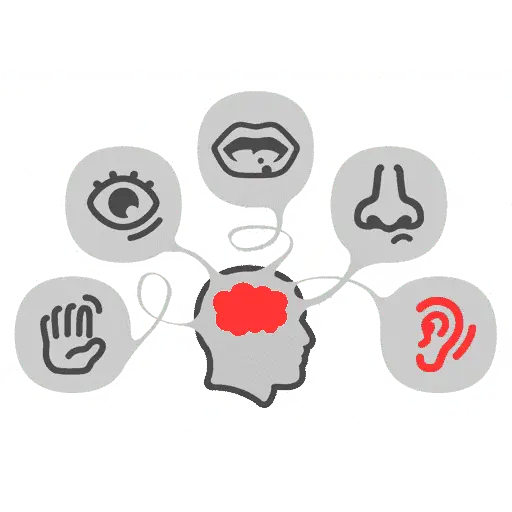
In NLP Auditory is one part of the Representational System. In NLP Auditory break down into two general parts; Internal and External. An example of Internal Auditory is remembering how your favorite song sounds like, remembering your favorite family member talks. There are legions more. Just say only the alphabet inside your mind and you have a great example of Auditory Internal.
Examples of Auditory External are:
So every audio word that comes from the inside is called Auditory Internal. Every audio that comes from the outside, we call in NLP Auditory External. In other words, NLP Auditory is relating to sounds or the sense of sounds. Hence, in NLP Auditory can be referred to as Audio.
Now, a lot of articles on the internet associate the Audio part of the Representational System with Eye Accessing Cues. Which in the basis is true, but there is more to tell about.
Read the following words as an example for what we are about to tell you:
As you already notice, all of these are examples of the Audio part of the Representational System in NLP.
As an exercise you can start to listen to the language an other person outputs. What is he or she talking about? Is this person talking in Audio mode? And if yes, check if their eyes move accordingly. See what happens when you start talking back in Audio mode, to build up Rapport. And even more interesting, what happens if you answer in another part of the Representational System? Your job is to investigate. As one of our teachers used to say: “Be that nutty professor”. As a result, see what works for you and see what does not.
Another exercise is to make lists of Audio words. Consequently, exercise your recognition for the words that come to you. And when you have a hundred or maybe more, start to classify them in Internal and External experiences. Last but not least, as a highly subjective experience and exercise; are those words Remembered or Constructed? In conclusion, remember that the quicker you are with this tool, the more it becomes useful in your daily life!
Mind Tools provides NLP Practitioner and NLP Master Practitioner Trainings and Certifications. We educate you according to the renowned, latest and highest standards set by the Society of NLP. We will train you thoroughly in all the corners of Neuro-Linguistic Programming and some extras we learned from Dr. Richard Bandler directly.
Our Licensed NLP Practitioner Training starts in:
On Checkout use the code NLP10PCTOFF and gain an extra 10% off our already discounted price.